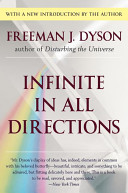Profiting on Asteroids
Some of the first questions which come up in any practical discussion of space colonization are questions of economics. Suppose we go out and settle on a convenient asteroid with our little spaceship, what do we do when we get there? How do we make a living? What can we expect to export in order to pay for necessary imports? If space colonization makes any sense at all, these questions must have sensible answers. Unfortunately, we cannot hope to answer questions of economics until the asteroids have been explored. At present we know almost nothing about the chemical resources of asteroids and the physical conditions we shall find there. The most important of all resources is water, and the abundance of water is still unknown. No human instrument has ever touched an asteroid, or come close enough to make detailed observations. In this connection, it is interesting to compare the economics of asteroid settlement with the economics of early colonies in North America. The early American colonists knew almost as little about America as we know about asteroids, and their economic expectations almost always proved to be wrong. The first settlers in Virginia intended to find gold and instead grew rich by exporting tobacco. The Pilgrims in Massachusetts intended to live mainly by fishing and instead became farmers and fur traders. The most important prerequisite for economic {284} survival is flexibility. Colonists should never believe economic forecasts and should be ready to switch to other means of livelihood when the forecasts are wrong.
In the circle of my own friends I have seen an example of a venture of colonization which may throw some light on the economic problems of asteroid settlers. My friends, a young man and his wife, established themselves on an uninhabited island in the North Pacific. They built themselves a comfortable house and had no difficulty in growing enough food for the table. The husband was a skilled blacksmith and built a sawmill and other useful pieces of machinery. In most respects the colony was economically self-sufficient. But there were a few essential items which they could not produce for themselves and needed to import. Diesel fuel was the most essential import. They needed to sail down to Vancouver once or twice a year with a large barrel and fill it up with diesel fuel for their engines. The question then arose, What was the most convenient cash crop which they could produce for export? They had to find a crop which could be easily grown on their island, easily transported in their boat, and easily sold for a high price in Vancouver. They were law-abiding citizens of Canada, and they had no wish to become involved with the smuggling of illegal drugs. What then is the most convenient, legal, high-value cash crop for a small island in the North Pacific to export? The answer to this question was not obvious. My friends only found the answer by accident after a number of false starts. The answer was, pedigree Rhodesian Ridgeback pups. The dogs were easy to breed on the island. They did not need to be fenced since there was no danger of miscegenation. They fed mostly on leftovers from the farm. And the pups could be sold to dog-fanciers in Vancouver for a couple of hundred dollars each.
The economic problems of asteroid colonists must be solved in a similar fashion, by finding cash crops which conveniently exploit local opportunities. Rhodesian Ridgeback pups will not always be the answer. But it seems likely that the appropriate cash crops for asteroid colonies will often be products {285} of specialized plant and animal breeding. Every asteroid colony must begin with a plant and animal breeding program aimed at the establishment of an ecology adapted to the local conditions. As a result, most colonies will possess varieties of plant and animal which are rare or nonexistent elsewhere. Just as on the North Pacific island, the isolation of an asteroid provides an ideal environment for maintaining purebred pedigrees. And every colony is likely to include not only a competent blacksmith but also an expert in genetic engineering.
Notes:
Folksonomies: space colonization
Taxonomies:
/business and industrial/agriculture and forestry/crops and seed (0.540786)
/pets/dogs (0.482284)
/science/biology/breeding (0.367917)
Keywords:
Rhodesian Ridgeback pups (0.987828 (neutral:0.000000)), North Pacific (0.865176 (neutral:0.000000)), space colonization (0.784251 (negative:-0.240595)), early American colonists (0.743570 (negative:-0.397446)), convenient asteroid (0.726877 (negative:-0.544648)), convenient cash crop (0.707677 (positive:0.314153)), economic problems (0.699133 (negative:-0.261847)), cash crops (0.695980 (neutral:0.000000)), high-value cash crop (0.695824 (neutral:0.000000)), North Pacific island (0.684959 (neutral:0.000000)), appropriate cash crops (0.684222 (neutral:0.000000)), diesel fuel (0.680470 (positive:0.635988)), animal breeding program (0.680323 (neutral:0.000000)), asteroid colonists (0.679070 (neutral:0.000000)), asteroid settlement (0.676866 (neutral:0.000000)), asteroid settlers (0.676571 (negative:-0.261847)), asteroid colonies (0.671592 (neutral:0.000000)), asteroid colony (0.661458 (neutral:0.000000)), little spaceship (0.588971 (negative:-0.544648)), practical discussion (0.588483 (negative:-0.240595)), sensible answers (0.586487 (positive:0.368869)), early colonies (0.582062 (neutral:0.000000)), necessary imports (0.581036 (positive:0.232623)), uninhabited island (0.577209 (neutral:0.000000)), economic expectations (0.573835 (negative:-0.453031)), human instrument (0.572470 (neutral:0.000000)), important prerequisite (0.572128 (positive:0.606189)), chemical resources (0.570662 (negative:-0.247283)), physical conditions (0.570520 (negative:-0.247283)), North America (0.568624 (neutral:0.000000))
Entities:
Vancouver:City (0.829186 (positive:0.352740)), economic problems:FieldTerminology (0.759638 (negative:-0.261847)), North Pacific:Region (0.702581 (neutral:0.000000)), North Pacific island:GeographicFeature (0.630807 (neutral:0.000000)), North America:Region (0.621000 (negative:-0.397446)), Massachusetts:StateOrCounty (0.491765 (neutral:0.000000)), Virginia:StateOrCounty (0.490458 (neutral:0.000000)), Canada:Country (0.479917 (negative:-0.561060)), hundred dollars:Quantity (0.479917 (neutral:0.000000))
Concepts:
Pacific Ocean (0.954223): geo | dbpedia | ciaFactbook | freebase | opencyc
Island (0.836742): dbpedia | freebase | opencyc
Colonialism (0.776645): dbpedia | freebase | opencyc
Crops (0.695054): dbpedia
Colony (0.681027): dbpedia | freebase
North America (0.672894): geo | dbpedia | freebase | yago
Rhodesian Ridgeback (0.643954): dbpedia | freebase | opencyc | yago
Economics (0.643748): dbpedia | freebase | opencyc





